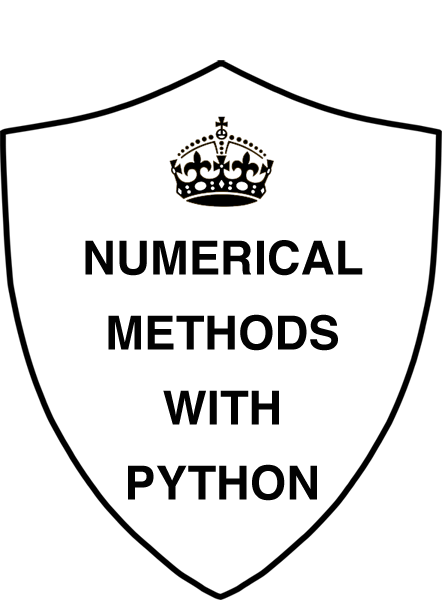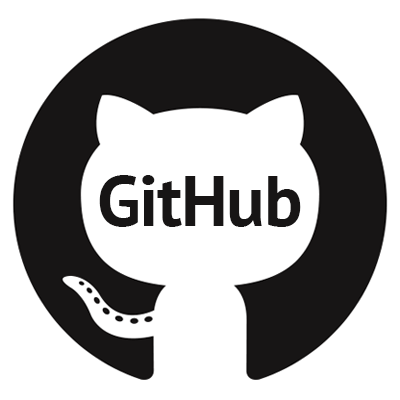A collaboration to issue badges in #numericalmooc

Announcing a collaboration with Prof. Daniel T. Hickey (Indiana University Center for Research on Learning and Technology) to award badges in our independent MOOC, "Practical Numerical Methods with Python."
When I was writing the short, internal proposal for creating what is now GW's first massive open online course (MOOC), I had a handful of clear ideas of how it was going to work—all of them far-fetched, as it turned out. But the idea of awarding badges on a course running on the Open edX platform was probably the wildest.
First, this would be a connected course, involving four instructors across the world teaching similar courses and collaborating on the course design, content, and online presence. (Sad to say one of our partners had to pull out when his local course got cancelled.) That we could collaborate in teaching like we do in research, co-authoring and providing peer review, is more doubtful than at first sight—it implies a process of iterative improvement for which research-active faculty just shouldn't have time.
Second, I was determined to "go it alone" on the MOOC and not associate ourselves with an aggregator like Coursera or edX. On the one hand, these require complex agreements with the university, which would probably involve slow, painful negotiations. I wanted to move fast. On the other hand, their conditions are not too savory (in my opinion): joining edX has a steep entry fee (like a million dollars for four courses), and Coursera's terms regarding revenue sharing and licensing of courses are suspect. I wanted course content to be really open: reusable, shareable, remixable.
To make possible this independent MOOC, I proposed that we customize and deploy the Open edX platform, which edX released as open source last year. It may sound simple: it's just software, right? Well, it's half a million lines of Python/Django interfacing with databases, with scant and slapdash documentation and no organized community (yet!). The only other US university with a production instance of Open edX is Stanford, and their budget and commitment to online education is second to none.
The third component of my MOOC proposal was that the course should be unbundled, organized into granular learning units (modules) for which we could award badges. I wrote: "We incorporate badges and granular learning to better reflect the behavior of online participants." There is no reason why open, online education has to replicate the administrative restrictions of campus courses, organized in 12- or 15-week segments for which you get one "grade." Online, every learner should be free to choose their own level of commitment, and why not recognize learning at the personal level, rather than at the course level.
Badges are micro-credentials and are ideal for a learner-centered system of recognition or accreditation, where individuals can create their own career "recipe." Each badge is associated with specific information about what it means to earn it, stored in the badge's metadata, including: date, issuer, criteria for earning it and so on. A powerful feature is that they can also include or link to actual learning objects that the students produce, or assessments they completed.
 At our first all-hands video conference for this collaboration—with Daniel Hickey's team and also Ned Batchelder from Open edX and Michael Amigot from IBL Studios (who customized and built our instance of Open edX)—we brainstormed about the possibilities for including learning artifacts. It's not possible to display assessments from Open edX, because currently the platform operates strictly on a registration/login basis.
At our first all-hands video conference for this collaboration—with Daniel Hickey's team and also Ned Batchelder from Open edX and Michael Amigot from IBL Studios (who customized and built our instance of Open edX)—we brainstormed about the possibilities for including learning artifacts. It's not possible to display assessments from Open edX, because currently the platform operates strictly on a registration/login basis.
But my course uses GitHub extensively … and we were planning on having participants show off their codes and problem solutions by contributing to an "assessment bank" on the course GitHub repository. Why not use links to GitHub to include in the badges the content created by the learners? This is an exciting possibility that we will investigate in this collaboration.
But there's one snag: none of this has been done before and it will require actual, hard-core software development. And Open edX has its hands completely full; if you doubt this, read their response to the Stanford Report on Open edX, where they list their planned developments for 2014–2015.
Daniel Hickey's project "Open Badges in Open edX and Beyond" (with support from the MacArthur Foundation), turned out to be a perfect fit for our ambitions. This new collaboration is serendipitous and potentially trailblazing. An epic challenge awaits!
Links
- Blog post by James Willis and Daniel Hickey, "Collaboration with Lorena Barba's Python MOOC and Open edX"
- "Proposal: A multi-campus, blended, connected course + MOOC", L. A. Barba. (July 2014). 10.6084/m9.figshare.1124190 // Course announcement